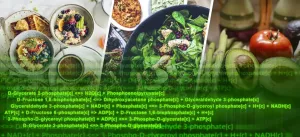Gut's immune response in COVID-19 may not provide efficient protection of other organs
A study of immune cells circulating in the blood hints the gut's immune response to COVID-19 infection may not provide sufficient whole-body immunity from the virus
2021-04-20
(Press-News.org) Our guts may not provide long-lasting systemic immunity from COVID-19, which is where immune cells circulate through the body to provide protection to other organs, finds a new study published in Frontiers in Immunology. An analysis of blood samples from patients infected with SARS-CoV-2 revealed that immune cells circulating in the blood, which were triggered by the gut's response to infection, were limited in number when compared to immune cells that had been triggered elsewhere in the body.
"Although the gut is considered an important portal of entry for the virus, the immune response in the blood of COVID-19 patients is dominated by lymphocytes - cells that protect the body from infection - that have been triggered by other areas of the body," says Dr Sebastian Zundler, author of this study and research group leader at the Department of Medicine 1, University Hospital Erlangen, Germany. "Further work is needed, but these findings may have implications for oral COVID-19 vaccines."
Gut response
COVID-19 infection can enter the body via the lungs or the gut, hence the advice for social distancing and frequent handwashing. Zundler's team were keen to understand the role of the gut in providing systemic immunity to this virus.
"My lab is usually interested in immune responses linked to inflammatory bowel disease - an immune-mediated disorder. Since SARS-CoV-2 infection can occur via the intestine, we decided to transfer our knowledge to study this virus," says Zundler.
The team used a technique called flow cytometry to detect and measure the different types of immune cells that were found in the blood samples of patients currently with COVID-19, patients recovered from COVID-19 and those free of the virus.
"There is a special mechanism in the lymphoid tissue of the gut that triggers the production of an imprint marker called "a4b7 integrin". This marker causes T cells to head towards the gut to fight infection. We can use this marker to identify whether there are lymphocytes circulating in the blood that were triggered by the gut's immune response," explains Dr Tanja Müller, lead author of this study, also based at the University Hospital Erlangen.
She continues, "We found relatively few immune cells with this marker in the blood of patients with COVID-19. This could be because of the "dilution" by cells generated at other sites of infection - most probably the lung - or alternatively by the selective attraction of these gut-imprinted immune cells to organs other than the gut, since there was no difference between patients with and without symptoms that suggested an intestinal element to their infection."
Implications for an oral vaccine
The researchers speculate that if the gut-imprinted immune cells are diluted in comparison to immune cells triggered by other parts of the body, there could be implications for the oral-based COVID-19 vaccines currently under development.
"If there are relatively few gut-imprinted immune cells, exposing the intestinal immune system with a SARS-CoV-2 vaccination might not result in substantial circulating immunity and therefore the cross-protection of other organs against the virus," says Müller.
Zundler stresses that further research is needed to understand the significance of their findings.
"Our study adds to our understanding of the human immune response to SARS-CoV-2 infection, but we cannot yet finally answer the question about the fate of the gut-imprinted immune cells - whether they are "diluted" or "attracted" elsewhere. Assessing biopsy samples from the gut and autopsy samples from the lungs will help us to answer this important question."
INFORMATION:
ELSE PRESS RELEASES FROM THIS DATE:
2021-04-20
Philadelphia, April 20, 2021 - American artisan cheese has become increasingly popular over the past few decades. Understanding spoilage concerns and the financial consequences of defects can improve quality, profitability, and sustainability in the American artisan cheesemaking industry. In an article appearing in the END ...
2021-04-20
Some Himalayan glaciers are more resilient to global warming than previously predicted, new research suggests.
Rock glaciers are similar to "true" ice glaciers in that they are mixtures of ice and rock that move downhill by gravity - but the enhanced insulation provided by surface rock debris means rock glaciers will melt more slowly as temperatures rise.
Rock glaciers have generally been overlooked in studies about the future of Himalayan ice.
The new study, led by Dr Darren Jones at the University of Exeter, shows rock glaciers already account for about one twenty-fifth of Himalayan ...
2021-04-20
A new mathematical model for the interaction of bacteria in the gut could help design new probiotics and specially tailored diets to prevent diseases. The research, from Chalmers University of Technology in Sweden, was recently published in the journal PNAS.
"Intestinal bacteria have an important role to play in health and the development of diseases, and our new mathematical model could be extremely helpful in these areas," says Jens Nielsen, Professor of Systems Biology at Chalmers, who led the research.
The new paper describes how the mathematical model performed when making predictions ...
2021-04-20
Newly published research contained in the Special Issue of the Journal of Marketing features fourteen global author teams focused on the topic of Better Marketing for a Better World. Edited by Rajesh Chandy (London Business School), Gita Johar (Columbia University), Christine Moorman (Duke University), and John Roberts (University of New South Wales), this Special Issue brings together wide-ranging research to assess, illuminate, and debate whether, when, and how marketing contributes to a better world.
The Special Issue is built on the thesis that marketing has the power to improve lives, sustain livelihoods, strengthen societies, and benefit the world at large. It calls for a renewed ...
2021-04-20
PORTLAND, Ore. - Policies designed to prevent the misuse of opioids may have the unintended side effect of limiting access to the pain-relieving drugs by terminally ill patients nearing the end of their life, new research led by the Oregon State University College of Pharmacy suggests.
A study of more than 2,500 hospital patients discharged to hospice care over a nine-year period showed a decreasing trend of opioid prescriptions as well as an increase in the prescribing of less powerful, non-opioid analgesics, meaning some of those patients might have been undertreated for their pain compared to similar patients in prior years.
The findings, published in the Journal of Pain and Symptom Management, are an important step toward optimizing ...
2021-04-20
Philadelphia, April 20, 2021 - A collaborative study from the Center for Injury Research and Prevention (CIRP) and the Center for Autism Research (CAR) at Children's Hospital of Philadelphia (CHOP) identified clear strengths and a series of specific challenges autistic adolescents experience while learning to drive. The findings were recently published by the American Journal of Occupational Therapy.
Researchers conducted in-depth interviews with 17 specialized driving instructors who were trained as occupational therapists, driving rehabilitation specialists, or licensed driving instructors and who had completed additional training related ...
2021-04-20
Flushing a toilet can generate large quantities of microbe-containing aerosols depending on the design, water pressure or flushing power of the toilet. A variety of pathogens are usually found in stagnant water as well as in urine, feces and vomit. When dispersed widely through aerosolization, these pathogens can cause Ebola, norovirus that results in violent food poisoning, as well as COVID-19 caused by SARS-CoV-2.
Respiratory droplets are the most prominent source of transmission for COVID-19, however, alternative routes may exist given the discovery of small numbers of viable viruses in urine and stool samples. Public restrooms are especially cause for concern for transmitting COVID-19 because they are ...
2021-04-20
A new UCLA study finds that the proportion of physicians who are Black in the U.S. has increased by only 4 percentage points over the past 120 years, and that the share of doctors who are Black men remains unchanged since 1940.
The research also spotlights a significant income gap between white and Black male physicians -- a disparity, the researcher writes, that could reflect a combination of pay discrimination and unequal access for physicians to pursue careers in more lucrative specialties. The paper will be published April 19 in the peer-reviewed Journal of General Internal Medicine.
"These findings demonstrate how slow progress has been, and how far and fast we have to go, if we care about the diversity of the physician workforce and the health benefits such diversity brings ...
2021-04-20
COLUMBUS, Ohio - A high daily dose of an omega-3 supplement may help slow the effects of aging by suppressing damage and boosting protection at the cellular level during and after a stressful event, new research suggests.
Researchers at The Ohio State University found that daily supplements that contained 2.5 grams of omega-3 polyunsaturated fatty acids, the highest dose tested, were the best at helping the body resist the damaging effects of stress.
Compared to the placebo group, participants taking omega-3 supplements produced less of the stress hormone cortisol and lower levels of a pro-inflammatory protein during a stressful event in the lab. And while levels of protective compounds sharply declined in the placebo group after the stressor, there were ...
2021-04-20
A Monash University study has uncovered for the first time a way to prevent and reverse damage caused by broken-heart syndrome, also known as Takotsubo cardiomyopathy.
Using mouse models, the pre-clinical study published in the acclaimed journal Signal Transduction and Targeted Therapy, has shown the cardioprotective benefit of a drug called Suberanilohydroxamic acid, or SAHA, dramatically improved cardiac health and reversed the broken-heart. The landmark study used SAHA to target genes and is a world first for Takotsubo cardiomyopathy.
SAHA, currently used for cancer treatment, is approved by the US Food and Drug Administration (FDA) and Australian Therapeutic Goods Administration (TGA), works by providing a protective benefit to genes and ...
LAST 30 PRESS RELEASES:
[Press-News.org] Gut's immune response in COVID-19 may not provide efficient protection of other organs
A study of immune cells circulating in the blood hints the gut's immune response to COVID-19 infection may not provide sufficient whole-body immunity from the virus


